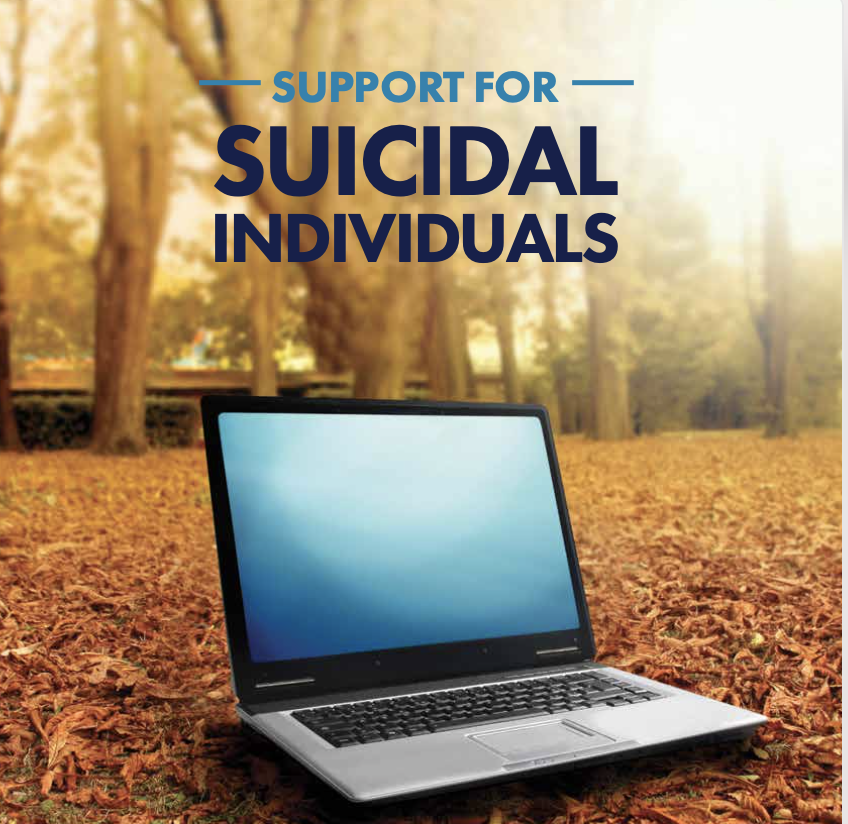Help Someone Else
If someone you know is struggling emotionally or having a hard time, you can be the difference in getting them the help they need. It’s important to take care of yourself when you are supporting someone through a difficult time, as this may stir up difficult emotions. If it does, please reach out for support yourself.
Do They Need Your Help?
Some warning signs may help you determine if a loved one is at risk for suicide, especially if the behavior is new, has increased, or seems related to a painful event, loss, or change. If you or someone you know exhibits any of these, seek help by calling the Lifeline.
- Talking about wanting to die or to kill themselves
- Looking for a way to kill themselves, like searching online or buying a gun
- Talking about feeling hopeless or having no reason to live
- Talking about feeling trapped or in unbearable pain
- Talking about being a burden to others
- Increasing the use of alcohol or drugs
- Acting anxious or agitated; behaving recklessly
- Sleeping too little or too much
- Withdrawing or isolating themselves
- Showing rage or talking about seeking revenge
- Extreme mood swings
How Can You Help Them?
It can be scary when a friend or loved one is thinking about suicide. It's hard to know how a suicidal crisis feels and how to act. Call 988 at any time for help if a friend is struggling.
Contact a Lifeline Center
Never keep it a secret if a friend tells you about a plan to hurt themselves. Call 988 so that you can find out what resources are available in your area, or encourage your loved one to call. Calls are routed to the Lifeline center closest to your area code that can provide you with local resources.
Use The Do's and Don'ts
Talking with and finding help for someone that may be suicidal can be difficult. Here are some tips that may help.
- Be direct. Talk openly and matter-of-factly about suicide.
- Be willing to listen. Allow expressions of feelings. Accept the feelings.
- Be non-judgmental. Don’t debate whether suicide is right or wrong, or whether feelings are good or bad. Don’t lecture on the value of life.
- Get involved. Become available. Show interest and support.
- Don’t dare him or her to do it.
- Don’t act shocked. This will put distance between you.
- Don’t be sworn to secrecy. Seek support.
- Offer hope that alternatives are available but do not offer glib reassurance.
- Take action. Remove means, like weapons or pills.
- Get help from people or agencies specializing in crisis intervention and suicide prevention.
Use the 5 Action Steps
These evidence-based action steps provide a blueprint for reaching and helping someone in crisis. 1) Ask. 2) Be there. 3) Help keep them safe. 4) Help them connect. 5) Follow up.
Practice Active Listening
Hearing someone talk is different from actively listening to what that person is saying. Active listening requires concentration and understanding. Improving your listening skills is easy to do with practice and these helpful tips.
Acknowledge the Speaker
This can be as simple as a head nod or an “Uh huh.” By acknowledging the speaker, you are letting them know that you are listening to what they have to say and reminding yourself to pay attention to what is being said to you.
Respond Verbally
Asking questions or making statements may help clarify what the speaker is saying. It reminds the speaker that you are listening attentively and that you are here to help them and are truly concerned. Be sure to let the speaker finish talking before asking any questions.
Summarize What You Hear
Reflecting on what the listener is saying is also a positive verbal active listening technique. By repeating, paraphrasing or even summarizing what the speaker has said shows that you are putting in effort to better understand them. Use phrases like; “what I’m hearing is…”or, “sounds like you’re saying….” These tactics can also allow the speaker to hear what they are saying, which may help them find positive reinforcement.
Look the Part
Keeping eye contact, maintaining good posture, and staying focused are key components of active listening and interpersonal communication. Being distracted and unfocused gives the speaker the impression that you aren’t paying attention.
When you actively listen to someone, you are letting them know that you care about what they are saying and can indicate that you are concerned for their health and safety.
Get More Info
The federal Substance Abuse and Mental Health Services Administration offers additional resources for multiple audiences.






